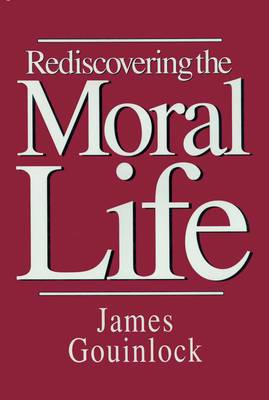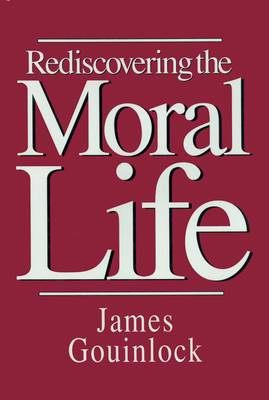
- Afhalen na 1 uur in een winkel met voorraad
- Gratis thuislevering in België vanaf € 30
- Ruim aanbod met 7 miljoen producten
- Afhalen na 1 uur in een winkel met voorraad
- Gratis thuislevering in België vanaf € 30
- Ruim aanbod met 7 miljoen producten
Zoeken
€ 65,45
+ 130 punten
Omschrijving
Periodically, someone must remind philosophers of just how far removed they are from the all-too-real and vital human concerns that affect people's lives. Someone has to point the way to a philosophy that returns to these concerns with both depth and realism. James Gouinlock has deftly accomplished both tasks in Rediscovering the Moral Life. With trenchant reference to such contemporary philosophical luminaries as Alasdair MacIntyre, John Rawls, Jurgen Haberman, Michael Walzer, and Richard Rorty (among others), Gouinlock demonstrates that the abstractions produced by these writers fail to engage the very subject matter that gives pertinence to ethical theory and offers direction to moral conduct. Gouinlock shows how current thinkers produce elaborate but lifeless and impractical conceptual schemes devoid of meaning for those of us who live in the real world.
Of vital importance is the moral life itself: the actual values, conflicts, ambiguities, and resources resident in human life. Here we find the sources of moral direction and aspiration. With learning, wit, and lively analysis Gouinlock carries out the project of discerning and appropriating these resources, and in so doing returns philosophy to the fundamental character of human perplexities and ambitions. Only in reference to the conditions of ordinary everyday living - with all of its confusion, frustration, and anxiety - can philosophy regain the vitality and pertinence to rescue it from the ivory tower.
Of vital importance is the moral life itself: the actual values, conflicts, ambiguities, and resources resident in human life. Here we find the sources of moral direction and aspiration. With learning, wit, and lively analysis Gouinlock carries out the project of discerning and appropriating these resources, and in so doing returns philosophy to the fundamental character of human perplexities and ambitions. Only in reference to the conditions of ordinary everyday living - with all of its confusion, frustration, and anxiety - can philosophy regain the vitality and pertinence to rescue it from the ivory tower.
Specificaties
Betrokkenen
- Auteur(s):
- Uitgeverij:
Inhoud
- Aantal bladzijden:
- 344
- Taal:
- Engels
- Reeks:
Eigenschappen
- Productcode (EAN):
- 9780879758158
- Verschijningsdatum:
- 1/08/1993
- Uitvoering:
- Hardcover
- Formaat:
- Genaaid
- Afmetingen:
- 162 mm x 236 mm
- Gewicht:
- 662 g

Alleen bij Standaard Boekhandel
+ 130 punten op je klantenkaart van Standaard Boekhandel
Beoordelingen
We publiceren alleen reviews die voldoen aan de voorwaarden voor reviews. Bekijk onze voorwaarden voor reviews.








